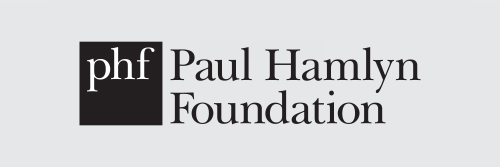
The Climate Crisis is like molten glass: after it comes out of the furnace, there is a narrow window of time to shape the glowing material as it cools at a speed of 10°C per second. Quickly, the glassblower must act, transforming before possibility turns solid. This is the kind of ecological time we find ourselves in; an urgent moment to act, a tipping point, before climate change becomes irreversible. The artists here use images to present this critical time as a space for action, where individual change can shape sustainable futures.
Questions about our resource production and changing environments are exhibited across the of The World of Glass Museum, punctuating the architecture of a building that belongs to St Helen’s industrial heritage. The work was produced through a collaboration between two artists, Andrew Broadey and Kevin Crooks, and seven photography students from Carmel College as part of Open Eye Gallery’s photography festival LOOK Photo Biennial 2022: Climate.
In this exhibition, new visual narratives are constructed from fragments of the North West’s industrial pasts. The accumulation of archival imagery of industrial machinery, transport, and architecture gathered by Andrew Broadey, and the visual legacy of St Helen’s coal mining collected by Kevin Crooks are both rearranged into montages that propose new connections.
Montage becomes a way to map climate change in its multiplicity of scale and temporalities. Photographs are fragments of time, and montage brings them together to navigate climate change across the local and global, the past and future. Rearranging, reshaping, and reimagining, montage holds the malleability and transformative powers of molten glass, helping us initiate ecological futures from fragments of our past.
Carmel College photography students Mali Cooke, Robert Scott, Marija Liunaite, Jon Gonzales, Grace Sabatina, Nicole Szadkowska, and Ella Askew look for traces of climate change in stories from their local context. The artists comment on the uncertain futures and unspoken realities behind the urgency of the climate crisis. They invite us to locate ourselves in this critical context, to acknowledge our responsibility and step into action for a better future. Change must happen now, at this heated point of malleability, when transformation is still possible. Before it melts into solid.
Kevin Crooks: ‘The Legacy of the Production of Energy’

Kevin Crooks’ work brings the past in conversation with possible futures, looking at the history of energy production from his hometown of St. Helens. The 1980s loss of coal mining and other connected industries instigated profound changes to St. Helens, not only to the landscape but also to the communities of workers within the town.
There is a visible and spoken legacy of the production of energy which has been somewhat preserved and altered over time. Between 2021 and 2022, Kevin spent time speaking with a number of individuals in the town for his work on the Oral History Project, commissioned by the St. Helens Archive Service. These conversations made it clear that there is an experience of loss which has been brought about by the decline of industry.
Here, these image’s intention is to consider how we now contribute to the production of energy, albeit on a hugely reduced scale. The increasing importance and clear effects of climate change and the rising cost of fuel is now shaping the way in which we consider the use of energy, its sustainability and the ways in which we, as individuals within our community, can contribute to its production.
Although our contribution to energy production is considerably diminished in terms of scale, could we, in time, begin to consider the self-sufficiency of our own production of energy? How can this enable, liberate and diminish our dependency on national and international energy supplies and resources? What impact would this consideration have on climate change

Andrew Broadey: “Untitled (Maestra) 2022”

Andrew Broadey’s work talks about the Capitalocene, the self-destructive historical process which co-opts the Earth systems to grow mercantile, financial, and industrial capital. He addresses this context by focusing on the theme of volatility. In this time of economic and climate instability, volatility has become part of life. In such a chaotic world we can feel powerless, subject to forces of change operating beyond our grasp. Nonetheless, volatility underpins our capacity to create, offering us a space for experimentation and new ideas. Broadey’s installation suggests that we can use volatility and disruption as a transformative force to initiate new ways of living sustainably.
The work comprises collages made of photocopied images collected from regional archives that show the history and pre-history of the North-West of England. The fragments dug out from this process of visual archaeology come together into the shape of the region’s postcode area, forming alternative maps that hold the multiple timeframes of the Capitalocene. The works displayed produce new associations between common image histories to bring attention to how climate change occurs through complex inter-relations of social, industrial, ecological and geological activities.
Montage is used as a navigational tool to make sense of the ungraspable landscape of the Ecological Crisis. The works dismantle and reconfigure visual associations that shape our relationship to such image histories, in a manner akin to Sergei Eisenstein’s description of montage as “a tractor ploughing over the audience’s psyche”. Broadey conceives this contemporary deployment of montage as a ploughshare that leaves our consumerist patterns torn and reversed, inviting audience members to imagine new and sustainable ways of thinking and acting.
–

–
Read Andy Broadey’s newspaper publication:
Carmel College students

How can images help us know and relate to the damaged environment around us? The following Carmel College students use photography to show us how the vast and often overwhelming theme of climate change is located in their tangible contexts. Looking at landscapes, communities, animals and memory, their visual stories help us access these complex realities by closing the gap between ecological data and lived experience. All seven photographers here are responding to the work by the two accompanying artists, Andrew Broadey and Kevin Crooks. The collaboration was initiated from a workshop during Open Eye Gallery’s Climate Lab, the research stage in preparation for LOOK Photo Biennial 2022: Climate.
Alternative ways of shopping are explored in the work of Jon Gonzales on thrifting culture, a growing movement that returns value to second hand materials. Similarly, Marija Liunate’s images of farm animals call for sustainable change by bringing attention to the impact of our food systems on other living beings. Non-human realities are further explored by Nicole Szadkowska, who invites us to look closely at the small and fragile world of bumblebees, noticing their important role in our environment. Focusing on a larger scale, Grace Sabatina’s work looks at architectural ruins to reveal unspoken correlations between warfare and its climate impact.
The eroding coastal landscapes captured by Ella Askew, Mali Cooke’s interpretation of the Liverpool Docs as a ‘critical zone’ of rising tides, and the memories collected by Rob Scott of people and their connection to place all show us how the climate crisis has surrounded us with uncertain futures. They ask us; how does this change involve you and what can you do to step into action before it’s too late?

